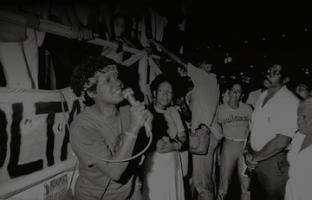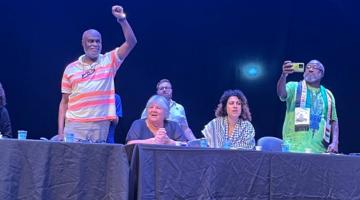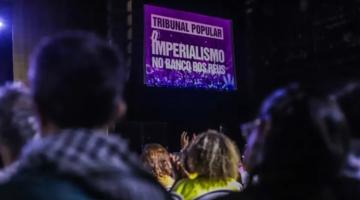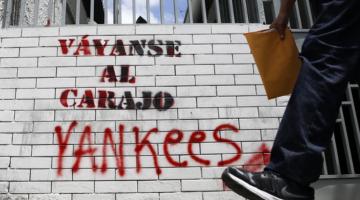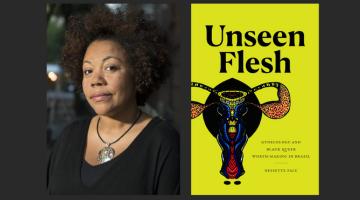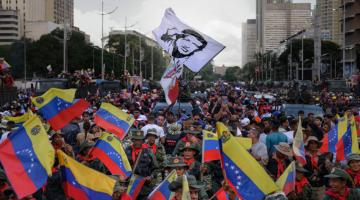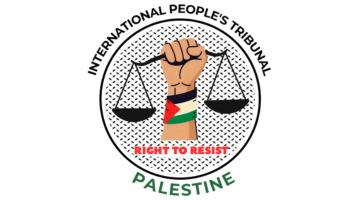Independent Journalist Corner: A Conversation with Maria Felipa of Frente Favela Brazil
“Slavery is the factor that better explains the social problems in the country.”
This week, I spoke with Maria Felipa, a philosopher and Brazilian history teacher and militant for the Slums of Brazil Front (Frente Favela Brazil). The Frente Favela Brazil is a political party registered in 2017, comprised of the inhabitants of favelas in the process of getting organized to run candidates in the 2019 muncipal elections. According to Felipa, the organization is scanning presidential candidates to vote for in the coming October elections. This process is being in held in the favelas themselves, where the pre-candidates come, sit in a verandah, and talk to the people. The Favelas are 112 million people, blacks of all shades, which includes many indigenous Brazilians and whites. Felipe explains that “contrary to academicism, poverty does not choose color, but we should not forget that the impoverished state of affairs for a large number of the afrodescendent population is due to the fact that our ancestors were virtually abandoned by their ex-masters,” which includes the flow of Europeans that escaped from the many wars in that continent over the course of history.
Felipa has moved away from Western thought and now concentrates on African thought and theologies. She is a fully ordained Candomblé Priestess, initiated at an early age, with 30 years of experience. As an activist for human rights, she has consistently fought for the marginalized in general, as per the forgotten Brazilian Constitution of 1988. She explained to me that the “the Constitution clearly states that each and every person in Brazil is free and equal, independent of class, color, sexual orientation, origin, or religion. Those simple constitutional rights have been forgotten and deformed by scandalous politicians, fake spiritual leaders, and public opinion shapers, some malicious and some naive.”
She goes on to say that “Marielle's case was an excellent example as to what is happening in journalism, even the progressive strain of it. It seems copying each other’s articles and relying on the scant knowledge of facts has become a fever, which I believe should be treated with caution. Here in Brazil, we're seeing from so-called ‘international correspondents’ a flurry of articles that are really repeating information and some based in untruths. Such are the facts.”
I spoke with Maria Felipa about the significance of Mariel Franco’s murder, both for Brazil and the larger political context of Latin America.
“As an ex ‘favelada,’ Franco understood the social complexities of relationships in the slums.”
DH: The recent murder of Marielle Franco has caused an uproar of protest in poor, Afro-Brazilian communities in Brazil. Could you give readers a sense of who Franco was and why she was so important to the struggle for justice and liberation in Brazil?
MF: Marielle Franco was a Feminist and human rights activist who grew up in the Maré slums (favela). Through her own efforts and with the help of a socialized state, she was able to acquire an education and moved out to Tijuca, a middle class neighborhood in Rio de Janeiro. Being out of the “favela” never made her stop her activism, which included the investigation of domestic violence, killings of police personnel, as well as killings and execution of black youth, religious intolerance and prejudices of any inclination. She was beyond one banner, her cause was justice for all. As an ex “favelada,” she understood the social complexities of relationships in the slums.
DH: Franco was a leader in the Socialism and Liberty Party (PSOL). Could you give a brief history of this party and how it has influenced politics in Brazil? Does it have any working relationship with the Workers Party?
MF: PSOL (Socialism and Liberty Party) was majorly formed by ex-members of the Worker’s Party (PT), discontented with the political direction PT was going. The frictions started at the end of 2002, when Lula, recently elected President, appointed Henrique Meirelles as CEO of the Braziliana Central Bank, (Banco do Brasil) in what would seem to be a continuation of the neo liberal politics inherited from the ex president Fernando Henrique Cardoso. Henrique Meirelles had previously been CEO to The Bank of Boston and FleetBoston Global Bank, hardly bastions of socialist institutions. Dissatisfaction was rampant among the left and far left, both within PT and outside the party, which led to an extensive discussion regarding avenues to be taken to ensure an equalitarian political agenda. However, at the end of 2003 Senator Heloisa Helena (Alagoas State), Congressmen João Batista Babá (Pará State), João Fontes (Sergipe State) and Congresswoman Luciana Genro (Rio Grande do Sul State) were expelled from PT. This event served as a call for other left wing leaderships to officially start to converge towards the formation of a new political party. In June 2004, in a national convention, the basic guidelines for the new party were presented and in September 2005, after registering the mandatory 500.000 signatures, PSOL came officially into existence. Immediatelly entire PT groups, such as the APS (Popular Socialist Action) migrated to the new party, along with proeminent long time PT militants, such as Plinio Arruda Sampaio.
At the moment, within PSOL there are two major currents: US (Socialist Unity) and BE (Left Block). US contains the national leadership and conducts middle ground politics, although they may be seen as very left wing as compared to PT. BE contains the Extreme Left and controls the party in a few states. PSOL is opposed to PT, but they may converge action when goals are similar.
DH: Brazil is currently under the leadership of a president, Michel Temer, who assumed power in a coup of former left-wing President Dilma Rousseff back in late 2016. What role do you believe the current leadership in Brazil has in the assassination of Franco and the perpetuation of the injustice she fought so hard against?
MF: Michel Temer had not much to gain from this assassination The condemantion of his presidency is the convergence point between most Brazilians, regardeless of political leanings. A corrupt congress and an obviously biased legal system do not need or desire this kind of bad PR. He has acheived a historic 86% rejection from the population, only equaled to ex-president Fernando Collor de Mello, back in 1992. Under his imposed leadership,Brazil has descended into social and economic chaos. Proliferation of militias of every sort, land grab brutality and general erosion of civil rights are the landmarks of this presidency. It would not be in the best interest for the extreme right to mandate this execution, for the obvious reason that it would denigrate even further their already very tarnished image. It’s noteworthy the fact that the Right Wing is completely silent in this matter, which is unusual to a group so inclined to grab any situation for self promotion. In spite of some malicious internet posts about Marielle, the overwhelming Brazilian public opinion is shocked and appallled by the assassination.
“It would not be in the best interest for the extreme right to mandate this execution.”
Maré and most Rio de Janeiro slums are microcosms of complex relationship networks. There are the drug delaers, with their gangs in perpetual war; there are the militias, both right and left-wing; there are the corrupt police death squads (which Marielle investigated) and the Antifascism police, all in the same slum favela, there’s the military and civil police, both insufficiently equiped with weapons to face crime, and the factions within it. To this date, 65 police personnel have been killed this year, a majority of them black. Among those, two were women. The churches are also a powerful force within the favelas. The evangelical movement, subsided by the American evangelical churches, have installed themselves quite comfortably in the slums, promoting a war against Afro-Brazilian philosophies and spiritual traditions; there’s also the Catholic Church and its priests, some adherents of Liberation Theology and other sects within Brazilian Catholicism, just to name a few. A Rio de Janeiro slum is an ideal place for individuals of any nationality and political inclination to move in and remain undetected. We must keep in mind Brazil is living a ‘state of exception’ and this year there’s supposed to be a presidential and state governor election.
DH: Over the last two decades, left-wing movements have found success in countries such as Venezuela, Bolivia, Ecuador, and Brazil. This has materialized in social democratic movements in the aforementioned countries and regional integration organizations such as ALBA (Bolivarian Alliance for the Peoples of Our America), all of which has led to tremendous economic gains for the poorest of the continent. These developments have been met with harsh backlash from oligarchs across the continent in alliance with the United States. Where does the assassination of Marielle Franco fit in this context?
MF: The political backlash is real and strong, as shown by the violence perpetrated against several popular movements in the rural and lawfully marked indigenous territory of Brazil. There was the murder in 2011 of judge Patricia Acioli, a Feminist who also investigated gangs and the drug world as well as corruption within the police force and domestic violence. This was a blow to civil rights in the ‘favelas.’ Ms. Acioli used to give stiff sentences to those convicted of these crimes. However, prior to her assasssination, Judge Acioli received several death threats but never paid heed to anyone of them. In the night of August 12th 2011, she was shot dead by two motorcycle riders, who were caught a few months later after a lengthy federal police investigation.
Marielle’s assassination, albeit sharing a few points with Judge Acioli, differs from the judge’s case in several aspects. First, she never received a single death threat. Second, in the judge’s case the political environment in Brazil was completely different from the present one. Third, Marielle’s assassination was professionally done, as the evidence points out. Her car was followed after she left a meeting by two other cars. She was killed in a place where the street cameras had a blind spot. The bullets used in the crime had been stolen from a federal police batch in 2006. The two cars were aftwerwards located, one in southern Minas Gerais state and the other in the Baixada Fluminense area of Rio de Janeiro. Fourthly, 2018 as mentioned previously, is an election year. Brazil, already in social turmoil, will elect a new president and several new state governors.
“Marielle’s assassination was professionally done.”
Contrary to 1964 [the beginning of decades of military rule in Brazil], we do have an interesting element in this quagmire: the military was forced to intervene in Maré and they are completely dissatisfied. General Villas Boas stated several times that the army’s role isn’t to intervene in neighborhoods because soldiers are trained for combat, not to manage complex communities. General Villas Boas shares the same views of many high profile military personnel and politicians, such as Major Olimpio, São Paulo state congressman and Ciro Gomes, pre-candidate for the Worker’s Democrat Party (PDT). Additionally, The Swans, an influential organization composed of retired upper rank military personnel, has expressed distate for the forced involvement of the military in affairs outside their field of action. It’s also interesting that Michel Temer has cut funds to keep military personnel at the Brazilian borders, especially Mato Grosso state.
DH: Black Agenda Report regularly discusses the international dimensions of white supremacy. Black Americans in the US face the daily threat of murder by the police, the highest rates of incarceration in the world, and worsening poverty. From Franco's work, it appears she was aware of the oppressed and poor condition of Afro-Brazilian communities. Could you give readers a sense of how white supremacy operates in the context of Brazil?
MF: In a country where 54% of the population is Afrodescendent and another 27% has Afrodescendent lineage, it’s necessary to use caution to frame issues. The racial democracy narrative has been used both to obscure the grim inheritances from slavery and at the same time, to portray the ever dynamic relations betwen different groups within Brazil. Brazil is, and at the same time absolutely isn’t, a racial democracy. To really know Brazil, it’s necessary to live in the different geographical regions, work, and be with the Brazilian people. Manicheistic thinking obscures more than enlightens the issue. The word democracy in itself is a sham, as history shows that Old Greece never quite fulfilled that social political goal. Brazilian social sciences have moved away from the discourse about “racial democracy,” to the much more alarming and real issues inherited by Brazilians due to slavery, which has come to be known as the factor that better explains the social problems in the country.
“In Brazil, a term to best express class and economic dominance is Eurocentrism, as many of the wealthy are not exactly white people but are of European descent,”
As the social dialogue progressed and colorism was brought to the table, it was observed that to some extent the “racial democracy” concept had a function, albeit limited, once many white skinned people, even the ones belonging to higher social classes, embraced African ancestry and, to the immense distaste of many theorists, a large portion of these white skinned individuals were (and are) reluctant to exclude their black ancestors for the sake of a political discourse. People live life and love whoever they love, to the despair of those who look for easy explanations for complex social phenomena. In Brazil, a term to best express class and economic dominance is Eurocentrism, as many of the wealthy are not exactly white people but are of European descent, such as Portuguese, Italians or people from the Middle East, who even when they’re dark skinned, are considered “Euro-descendents.” So rather than “White Supremacy,” it’s more accurate to refer to “Eurocentric dominance,” which as anything else, has many layers and could be defined in this context, as an economic force, which expresses itself in the media control and ownership of assets and land.
Much was made by the “self declaration” as black in legal terms. The only change is that now people can state what ethnicity they perceive themselves to be, whereas in the past the government would simply mark down what they saw. The simple fact that the majority of people are dark and dispossessed, will evidently reflect in the numbers involved in crime and brutalization. But, in this tapestry, the thread that has always been present is the abuse of women, especially black and native Brazilian women.
DH: The struggle against white supremacy has historically been a global struggle. The Black Left in the US has a long tradition of finding strength in the struggle of oppressed people fighting for self-determination in their respective contexts. What kind of strength and connection can be derived from Marielle Franco's example?
MF: Above all, let’s keep in mind that Marielle was a woman, then a black woman with a powerful voice. The strengthening of ties among diverse peoples all around the world, as shown by the 3.2 million tweets in the first three days after her assassination and the 60 countries who organized marches and protests, show a good example of global solidarity, which should continue to the benefit of all of us. It’s necessary to always reflect about the contexts in which those struggles take place. The tendency to mistake situations, even when historically similar, certainly generates a great deal of confusion, not to mention the distorted views of some northen main stream periodicals, which seem to enjoy finding faults in Brazil. It’s possible that such a tendency is a type of very well disguised racism, afterall, Brazil is a black country who despite all countercurrents, was capable of electing two socialist presidents, after 500 years of struggle extending from the first kilombos (villages founded by runaway slaves and just about anyone escaping from tyranny) to the present day favelas. The best way to efface Black Brazil is to wipe out its organic history and replace it with a sham.
DH: Are there any further plans in the works to ensure that Marielle Franco's legacy lives on in Brazil and worldwide?
MF: Marielle Franco was a powerful woman among many other powerful individuals. Her legacy lives on because she herself came within a long chain of activists, who have being passing on to the next generation the skills, philosophies and views pertaining to the building of an egalitarian society, which had its inception in the 16th century kilombos and only updated itself as time passes by. And it certainly will continue, in spite of the many attempts from those who wish to either manipulate, distort or diminish Black Brazilian Civilization.
Danny Haiphong is an activist and journalist in the New York City area. He can be reached at wakeupriseup1990@gmail.co

